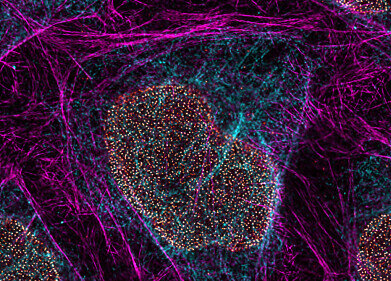Microscopy & Microtechniques
Is It Possible to Prevent a Peanut Allergy?
Feb 08 2017
For parents, teachers and food manufacturers alike, peanut allergies are one of the most dangerous immune system reactions out there. Now, new guidelines from the National Institute of Allergy and Infectious Diseases (NIAID) are suggesting that early and regular exposure to peanut-containing foods could play an important role in preventing peanut allergies later down the line. While the guidelines have been criticised for being complex, NIAID assures the public that they’re based on cold, hard science.
“We’re saying that if you introduce peanuts early, you’re going to have a very good chance of preventing peanut allergy,” explains Alkis Togias, an in-house NIAID allergist.
The guidelines were recently published in the Journal of Allergy and Clinical Immunology, as well as five other high profile journals. They grouped kids according to different risk factors, and included multiple pages of detailed advice on how to prevent development of an allergy.
The pro-peanut approach
It’s a controversial topic, though Togias maintains that the medical industry has been pioneering the pro-peanut approach for years. Suspicion was first sparked in 2008, when researchers noticed that Jewish kids living in the UK were more likely to develop peanut allergies than their Israeli counterparts. Diet was identified as a major factor, as Israeli babies tend to start consuming peanut based foods at around seven months. In comparison, British babies aren’t usually introduced until the age of 12 months, or older. The results inspired the Learning Early about Peanut Allergy (LEAP) trial, which drew on results from more than 640 babies aged between four and 11 months. Amazingly, peanut allergies dropped by around 70 to 80% for the group consuming peanut-containing foods.
“The results were so impressive that we felt it would be unethical to not come out with these guidelines,” comments Togias.
Fighting peanuts, with peanuts
Of course, there are some exceptions, with the guidelines warning parents to stay away from peanuts if babies suffer from eczema or egg allergies. Experts also assert that once introduced, repeat exposure is key.
“Once peanuts are in the diet, they need to stay in the diet,” states American paediatric allergist J. Andrew Bird.
While Togias isn’t under any illusions that the US will see an 80% drop in peanut allergies, he is optimistic. Every year the USA sees around 80,000 new cases of peanut allergies, which means that even a 50% reduction would be an enormous step forward. “If we cut that in half, we’re saving 40,000 kids right away,” he says.
Groups like the NIAID are continually on the search for new ways to revolutionise modern medicine, and improve quality of life. ‘Speeding up Research into Clotting and Bleeding’ highlights the latest practical detection techniques from Maastricht University, developed in conjunction with spin-off company Synapse.
Digital Edition
Lab Asia 31.2 April 2024
April 2024
In This Edition Chromatography Articles - Approaches to troubleshooting an SPE method for the analysis of oligonucleotides (pt i) - High-precision liquid flow processes demand full fluidic c...
View all digital editions
Events
Apr 25 2024 Istanbul, Turkey
Apr 28 2024 Montreal, Quebec, Canada
May 05 2024 Seville, Spain
InformEx Zone at CPhl North America
May 07 2024 Pennsylvania, PA, USA
May 14 2024 Oklahoma City, OK, USA


















